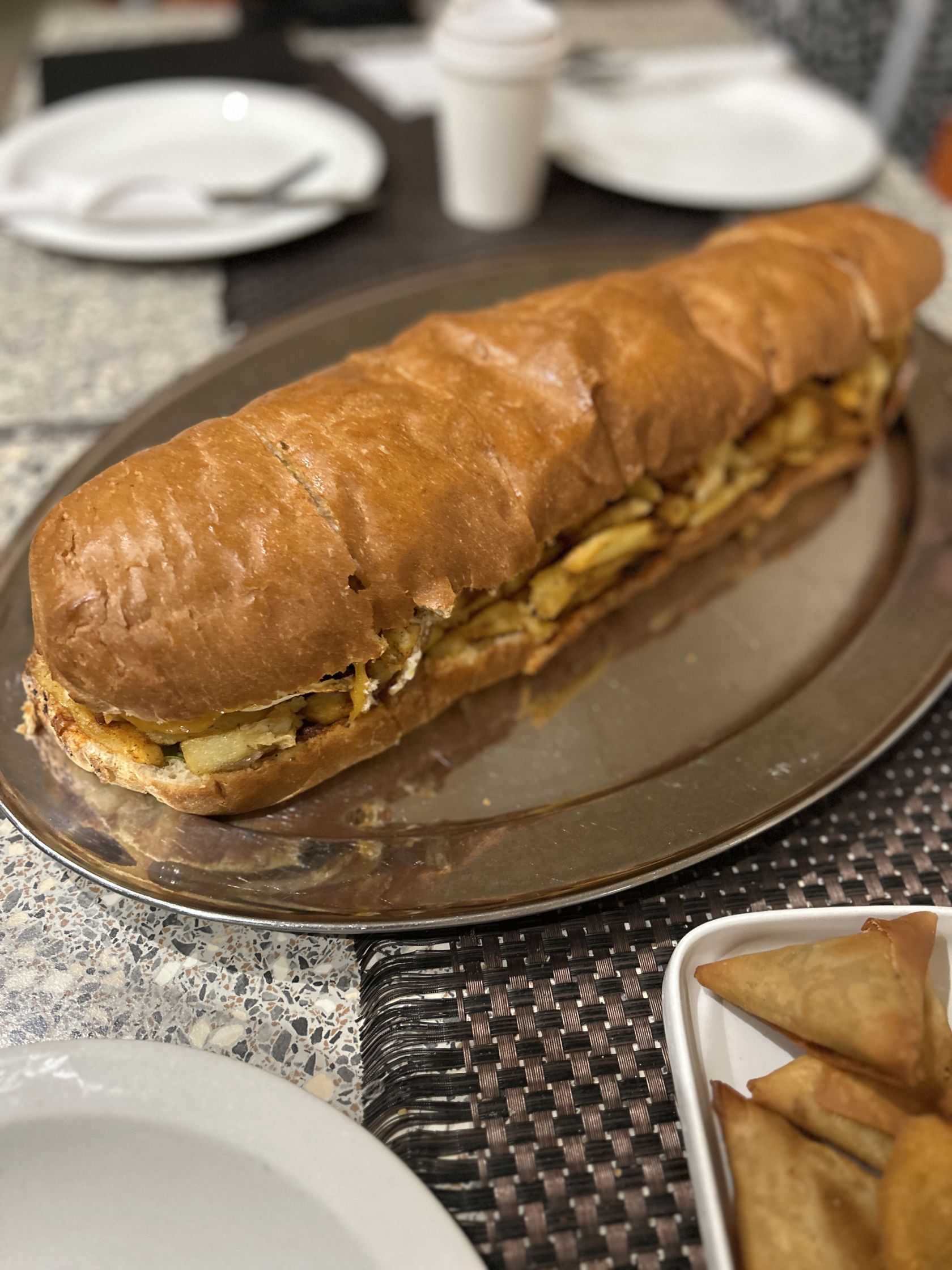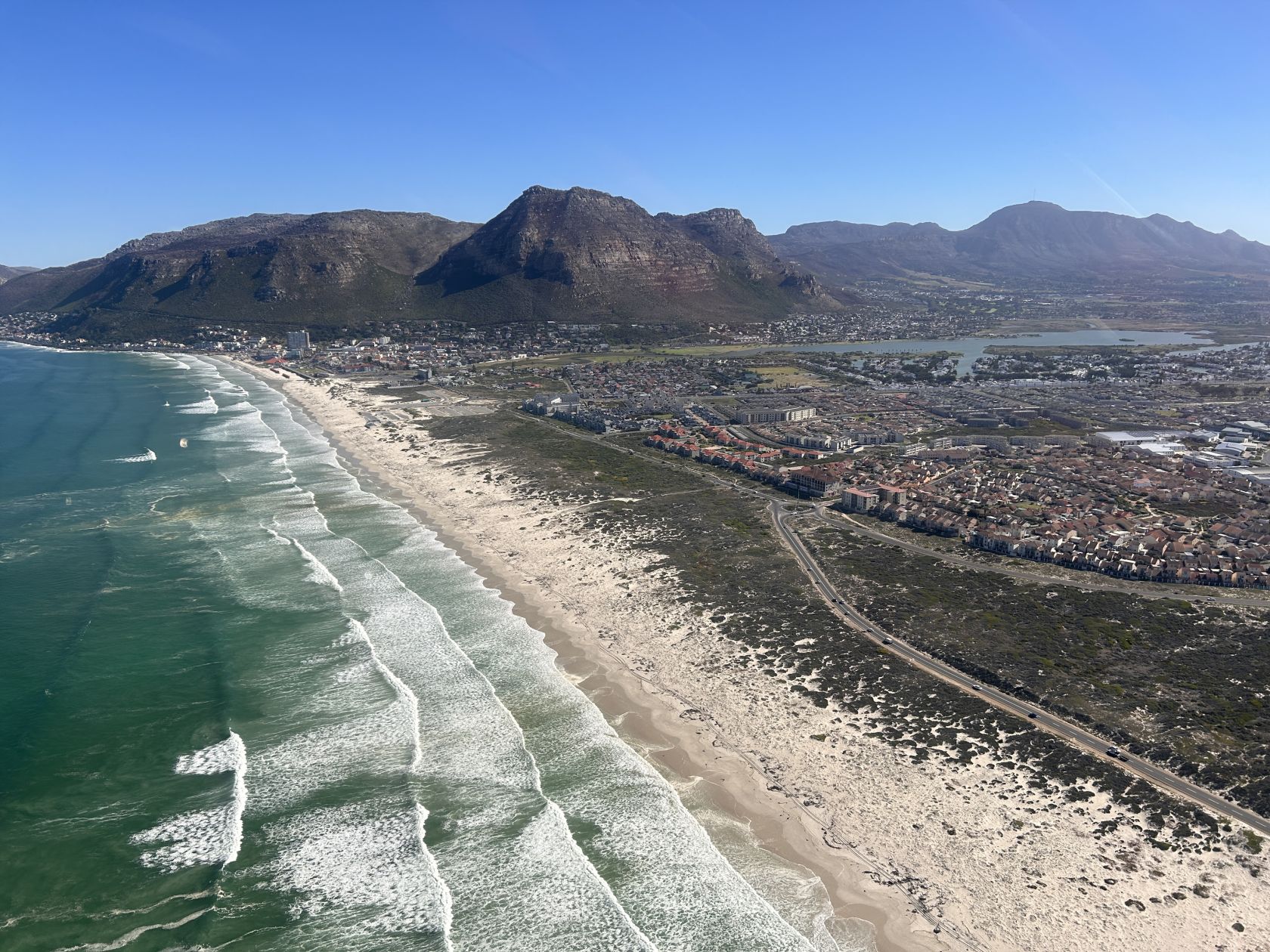The sight ahead of me is daunting. Trickier to tackle than Table Mountain – and equally as iconic – it’s beyond anything I can handle alone.
But the mammoth submarine sandwich sitting on my plate is easy work for hungry Capetonians.
Borrowing its name from F. Scott Fitzgerald’s classic novel, The Gatsby was invented in the mid-1970s when a fish and chip shop owner in the Cape Flats (an area where many townships developed) created a sandwich of leftovers to feed his workers.
Beyond being a budget feast (often feeding multiple mouths), the sandwich has a cultural significance. It represents the resourcefulness and community spirit of Cape Town’s working-class neighbourhoods during apartheid.
Stuffed with chips, meat, gherkins and a rainbow array of unhealthy sauces, it’s a monster of a meal. Costing half the price of a fancy coffee in London, it’s also incredibly cheap.

At the time of my visit, the exchange rate sits at approximately 24 South African rand to the pound, but rates have been consistently good for some time. So even though the price of a 10-hour flight might cost around £800, your pounds will stretch much further after touchdown.
While you’d struggle to find a decent hotel room in London or Manchester for under £150 per night, boutique guesthouses in Cape Town’s trendy neighbourhoods can cost as little as £35-50 per night – some even with mountain views.
A three-course meal at one of Cape Town’s award-winning restaurants will set you back around R300-500, or roughly £12-20 and a bottle of decent local wine can cost less than £10.
Transportation is budget-friendly too. Uber rides across the city centre rarely exceed R50-80 (£2-3), making it cheaper than a single zone bus fare in London.
Continuing my urban food and drink safari, I find myself in one of the city’s most saintly coffee shops, where a caffeine fix is near nirvanic. Far cheaper than a Starbucks, Heaven Coffee has become an invaluable part of the community for many more reasons.
Tucked inside a Methodist Church on Greenmarket Square in the CBD, the enterprise was set up by entrepreneur Mondli Mahamba who first turned up as a homeless person seeking help.

“I asked the minister if I could rent a space,” he explains, as a coffee machine whirrs and splutters. “It was a way for me to do something. I enjoy hosting people. I wanted to create an open space for everyone – from high-flying lawyers to homeless people and tourists from Europe.”
Along with serving locally roasted coffee and providing a peaceful and accessible haven in a busy city, Mondli trains and upskills those who’ve been down on their luck. But he stresses Heaven isn’t a charity.
“Coffee builds community and brings people together,” he says.
Celebrating grassroots traditions is at the core of the Seven Colours Eatery in the Victoria & Albert Waterfront development. Chef and founder Nolu Dube-Cele nostalgically recalls dishes made by her grandmother in Eastern Cape village Tsengiwe and highlights the diversity of South Africa’s culinary heritage through her creative menu.
“I want to celebrate the country I love so much,” she enthuses, serving umngqusho – also known as samp (dried corn) and beans, a staple dish cherished by Nelson Mandela. I eat it with chakalaka (a spicy vegetable relish) and drink wine made by the HER group of all-black, all-female winemakers.
“Seven colours is the nickname for a dish often served at family gatherings,” explains Nolu. “My grandma would serve it on Sundays – using everything and anything she had. Some of the ingredients don’t even get along on the plate, but when you eat it you feel loved.”
Costing less than £10 for a main meal big enough for two, Nolu’s dishes create a warm, glowing feeling all round.
More than being affordable, Cape Town offers luxury experiences at high-street prices, five-star adventures on a three-star budget, and memories that are absolutely priceless.














